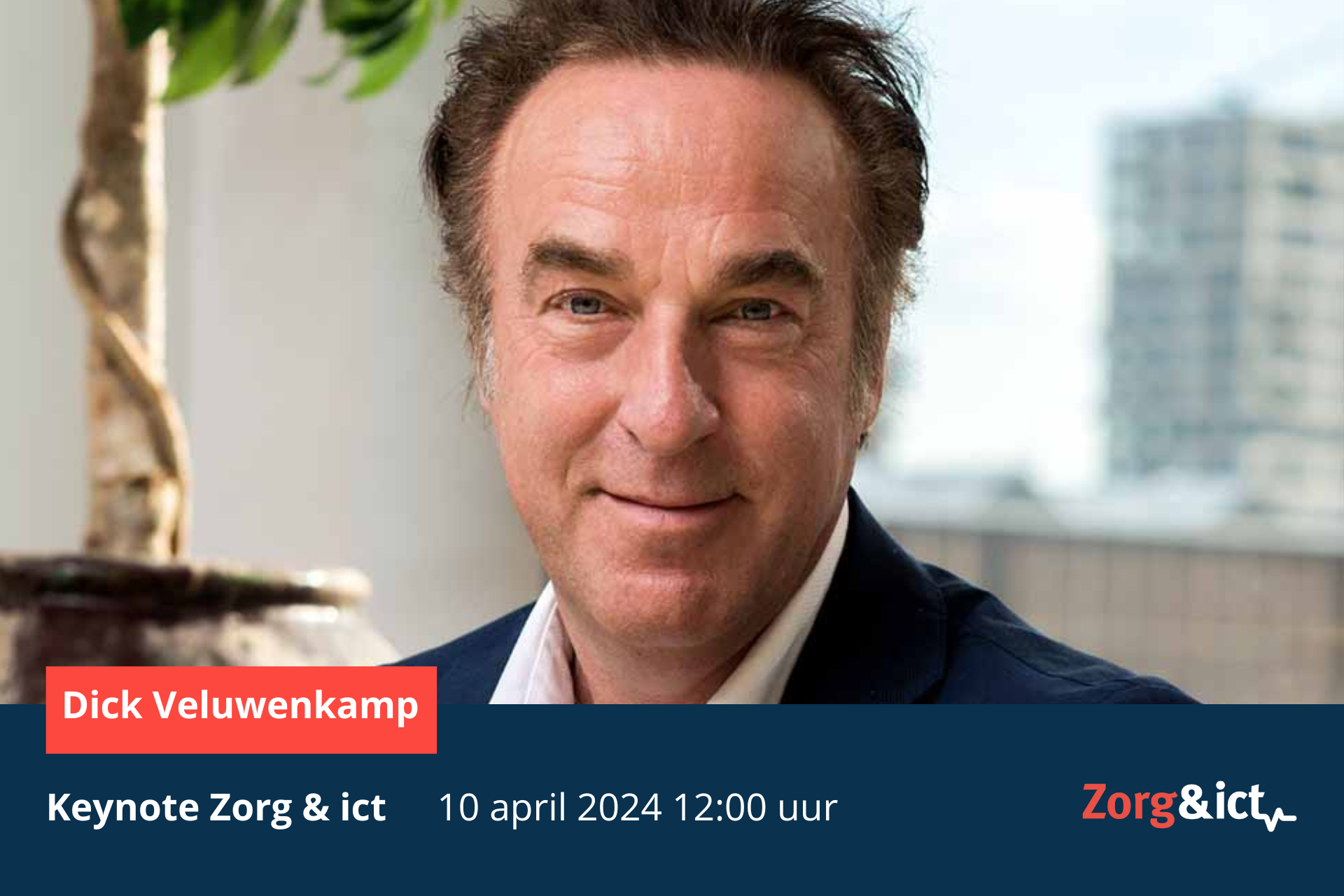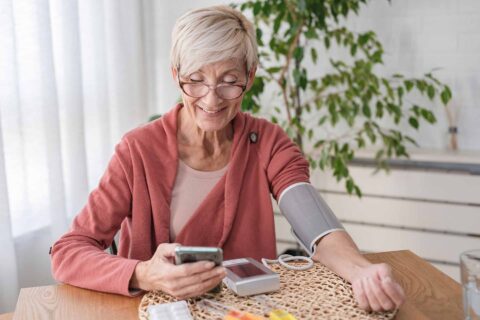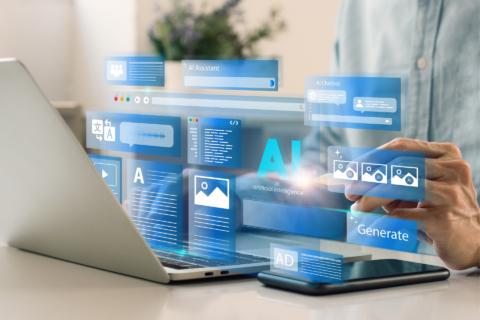In a sector at the forefront of digitization, mental health provider Arkin is considered a frontrunner. More than 60 percent of the clients use the online care offer. The foundations of the 'digital Arkin house' are vision, intrinsic motivation, collective leadership and room to experiment. The latter is not always granted to healthcare, according to board chairman Dick Veluwenkamp. "Do we dare to accept uncertainty or do we want to capture everything in rigid blueprints first?"
Like an expedition to a largely unknown land, that's how Veluwenkamp sees the journey Arkin started a few years ago around digitization of healthcare. There is an end goal, but the best route only becomes clear along the way. The journey begins with formulating a shared vision. "We believe that digital care should be available to anyone who would like it, just as you can use all kinds of digital tools for banking or travel," Veluwenkamp summarizes the premise of the Arkin Digital program. "The condition, of course, is that it is not inferior to physical contact in terms of effectiveness and quality."
Logical step
Corona made this physical contact virtually impossible in one fell swoop four years ago. Digitalization of care thus received a major boost. A development that suited Arkin well. "Our specialist for addiction care Jellinek, for example, has been offering blended or sometimes entirely online therapy for years. So when corona came along, it was a logical step to continue that. That vision has been reinforced in recent years by the problem of staff shortages. The demand for mental health is also increasing exponentially. That reinforces the urgency to bet on digitization."
Intrinsic motivation
Each new step in the journey to digital care, Arkin explicitly wants to take together with professionals and clients. "You can't impose digitization from above," Veluwenkamp says. "It stands or falls with intrinsic motivation of practitioners. And we obviously do it at the direction of the client. We have had good cooperation with the client council for years. It has had an equal role in vision development. We also conducted a large online client consultation. In it, we asked thousands of clients what they think of digital care."
No clients left out
Although mostly positive, clients cautioned against excluding groups of patients. "We must be careful not to exclude clients because they are not skilled or even fearful of using digital capabilities," Veluwenkamp responded.
"If you're suspicious or you get into a psychosis, you're less likely to sit down at your laptop. Then you might think the CIA is behind it. The autonomy of the practitioner is crucial in this context. Only the practitioner can judge whether it is justified to do treatment online."
Loss of income
In addition to client and practitioner involvement, digitization requires room to pioneer without getting stakeholders hung up on nail-biting results. No mean feat in an industry where waiting lists and staff shortages create significant pressures. "If I set people free for digital initiatives, the director of operations or finance will say: nice Dick, but this is at the expense of revenue and productivity. Every hour a practitioner doesn't see a client is an hour of lost revenue. The practitioner himself may also find himself in a conflict of conscience. Will he use his scarce time to see a client or think along about a digital application? These are dilemmas that limit your freedom of action."
Room for setbacks
What bothers Veluwenkamp is that policymakers expect the benefits of digitalization to be calculable to the decimal point even before a course begins. "A few years ago I had a conversation with insurers about whether digital innovation could be reimbursed. There were all kinds of requirements beforehand. It had to lead to a lower average price. Then I said: I'm not going to do that. Innovating also means experimenting and therefore not knowing exactly what the outcome will be. That requires room for setbacks."
Own resources
"With the Integral Care Agreement, we still fall back into an old way of thinking. Of course we have to answer in the end, but you also have to create space. No one can promise in advance what it will deliver at the detailed level. So I made a conscious decision at the time to create the financial leeway myself, partly from our own resources, partly with subsidies. That ensured that we could then use a budget of about two million euros without outside interference."
Value creation
This does not mean that digital innovation at Arkin is a matter of freedom-joy. According to Veluwenkamp, Arkin takes a methodical, structured approach in which value creation and scaling up are the main benchmarks. "You can think of value in terms of freeing up time, space or people, but also in terms of greater client control or better accessibility. And that's not just in terms of waiting time, but also in the form of care that connects to the client's daily life, so they can decide when to work on their own mental health."
Competition
The discovery of the client as a consumer has significantly boosted the supply of digital mental health support. Consider the explosion of mood, sleep and mindfulness apps. In addition, there have been numerous new entrants who work entirely digitally, such as Mindler. Still, Veluwenkamp wants to know of no competition. "Mindler has whole other group of clients. That is a group of clients who don't come to us for care at all, because they are too light for us as a second-line, sometimes even third-line specialist mental health organization."
This is not to say that digital care is only for "easy" clients. "Even with the more difficult target groups it appears to work," Veluwenkamp says. "At our forensic branch Inforsa, for example, we use virtual reality to practice for probation by exposing people to the stimuli and temptations of the outside world."
Digital human
More experimental in nature is the development of a digital human at the expertise center for eating disorders Novarum. Such use of artificial intelligence has its ethical and legal drawbacks, Veluwenkamp acknowledges. This applies to a lesser extent to the use of algorithms in reducing no shows or easing the administrative burden.
Available 24/7
"It is our dream that soon all clients who want it will be able to use Arkin's digital capabilities and services at any time of day," Veluwenkamp summarizes Arkin's digital ambition. "And that we can demonstrate that digitization has helped improve accessibility, reduce staffing shortages and support Arkin's financial health."
Uncertainty
As far as Veluwenkamp is concerned, whether this will succeed depends in part on the broader innovation climate in the Netherlands. "I worry about how we deal with innovation in the Netherlands. We use big words like transition and transformation, but do we dare to accept uncertainty together? Do we want to lay everything down in a rigid blueprint first, or do we say: we know where we want to be in four years, but not exactly in size and number? Exploring means: more space, less bureaucracy. It seems we want to reduce all uncertainty at the front end of the innovation process. If you really want to innovate, that doesn't work."
Dick Veluwenkamp acts as keynote speaker during Zorg & ict 2024. The largest health tech event in the Netherlands will be held from April 9 to 11 at Jaarbeurs in Utrecht.












